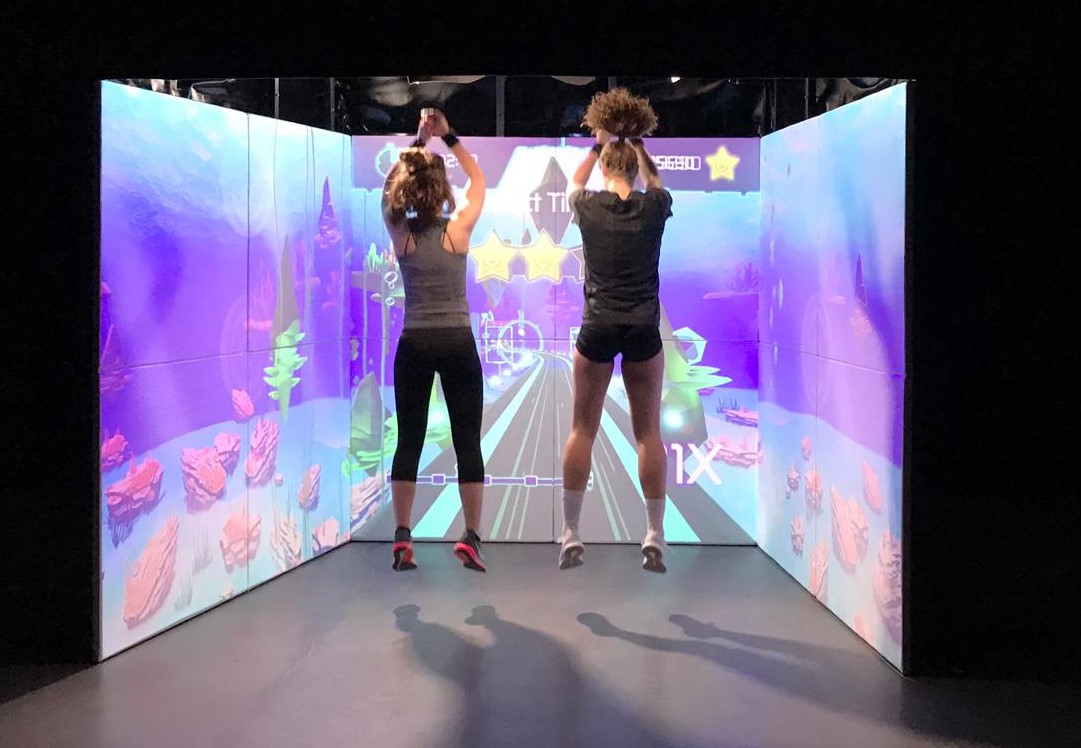In-game Auditive Feedback of an Exergame
The difference in performance acquisition and training experience depending on the auditory feedback of the ExerCube.
Investigating strategies to enhance motor learning is a research area with various fields of applications, such as in rehabilitation, sports and prevention. Research showed that in terms of learning, the augmentation of external feedback is generally in favour over control groups (no external feedback), no matter if visual, auditive or haptic feedback were used. Furthermore, combination of different feedback channels seems to be an attractive option since this allows the reallocation of the cognitive load, leading possibly to more efficiency and less interferences. Nonetheless, findings depend strongly on type of motor task as well as on feedback design. To date, most studies in this area are conducted in rather artificial laboratory settings with simple motor tasks, leading to the question if the obtained findings persist also under more ecological, less stable learning conditions with more complex movements.
A practicable option in this respect is the ExerCube, an exergame where on the one hand a realistic training environment is created with various functional whole-body exercises and on the other hand well-designed and reliable feedback is integrated. In this study, we aim to explore the performance acquisition in the ExerCube over three weeks comparing three groups that exercise twice a week with different auditory feedback. While all groups receive visual feedback, the three groups will be supported with different auditive feedback. One group will be informed about their current performance through adaptive background music, one group through effect sound and the third group will train with both, adaptive background music and effect sound. In-game parameters of the exergame as total number of successfully performed exercises, performance accuracy, and obtained total score will inform about performance progresses in the ExerCube. Since enjoyment, flow, motivation and subjective feedback preferences are likely to influence performance learning, questionnaires are used additionally to capture those subjective parameters.
This study is a collaboration of our research group with the company external page Sphery.
